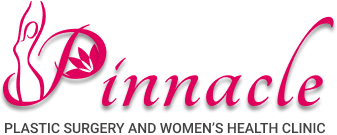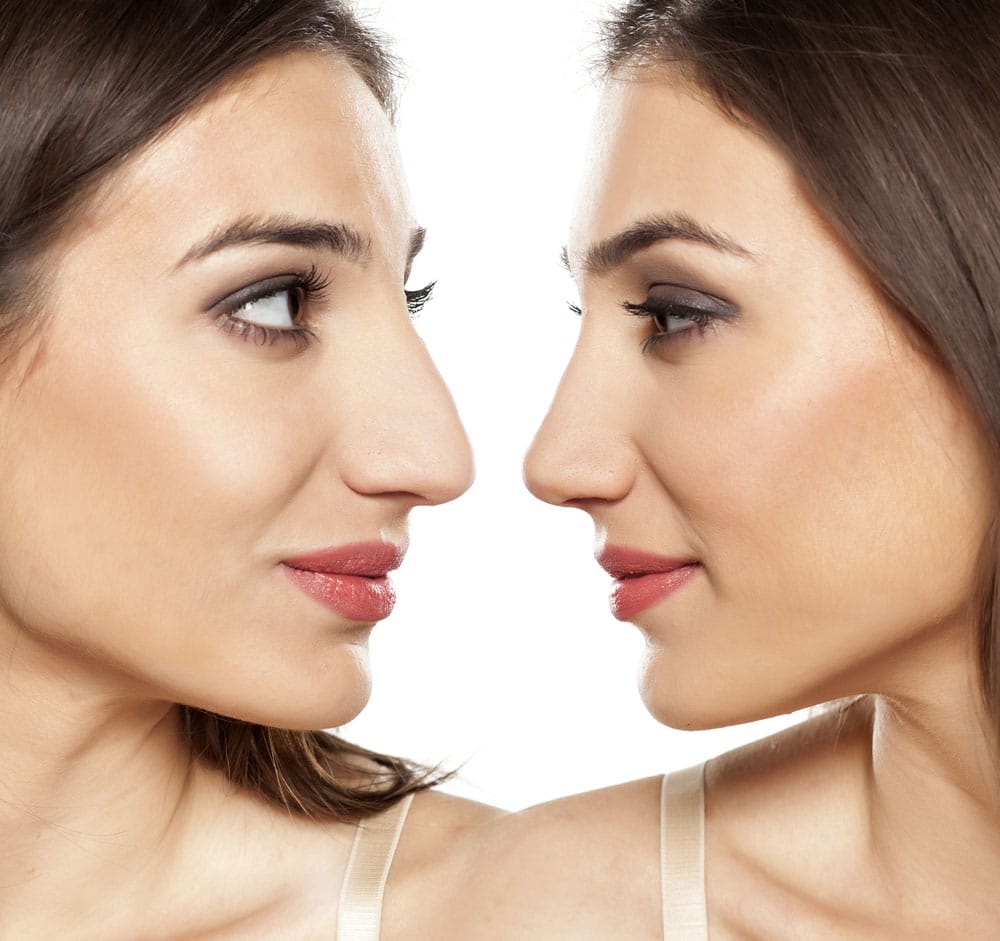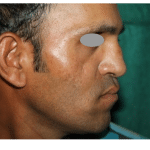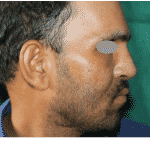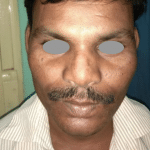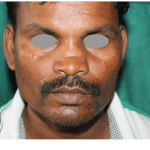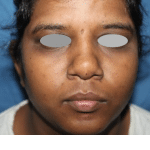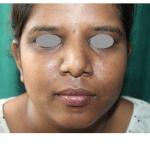What Is Rhinoplasty?
The nose is a dominant part of our face and its shape and looks define the face. An unshapely nose or a misshapen nose could lead to downgrading the overall visual appeal of the face. Rhinoplasty or Nose Job is a surgical procedure performed to alter the appearance of the nose. Patients who undergo Rhinoplasty see an improvement in the aesthetic appearance of their nose. Rhinoplasty is also performed to restore the nose to its original shape after it has suffered a major injury during an accident or any other unfortunate event.
What Is The Cost Of Rhinoplasty In India?
Nose surgery costs in India vary from city to city and surgeon to surgeon. The rhinoplasty cost is generally in the range of Rs. 40,000 to Rs. 2,00,000. A non-surgical rhinoplasty cost in India is slightly lower than surgical rhinoplasty. But the actual cost estimate will be given to you by your surgeon. Since every case is unique the skills required and the time required will be different. Therefore, it is better if you consult your rhinoplasty surgeon on matters of cost.
In case you are wondering whether or not a Rhinoplasty is right for you, we invite you for a consultation with Dr Shree Harsh. He will discuss the treatment, its benefits, best possible results and any complications involved one-on-one with you.
What Nose Related Issues Can Be Corrected By Rhinoplasty?
Rhinoplasty can start from a slight alteration of the structure of the nose right up to the restoration of the nose to the original shape in case of accidents or injuries. Following are some common issues that warrant a Rhinoplasty for the patient:
- Asymmetrical Nose - The shape of the nose is asymmetrical or twisted or a deviated septum. A deviated septum is a serious medical condition in which the bone and cartilage that divides the nose into half, is not aligned to the centre. This condition causes obstructions in breathing for the patient.
- Dorsal Hump on Nose - A dorsal hump is a deformity related to the nose. It is a bump on the bridge of the nose which makes the nose look misshapen. Often times a dorsal hump is not visible when viewed from the front in photographs, but it is clearly visible in side-profile pictures.
- Unshapely Nasal Tip - Some patients have an overly roundish nasal tip or an unshapely nasal tip with no other problems on the nose.
- Drooping Nasal Tip - When the nasal tip is at an angle of less than 90 degrees with the upper lip, this condition is called a drooping nose. Such a nose reduces the overall good looks of the patient’s face.
- Undesirable Nose Width - Some patients have noses which are wider than normal symmetrical proportions. A wide nose can make a person’s face look flatter and less desirable.
- Accidents/Injuries - A patient who has undergone a traumatic situation such as an accident or an injury which results in major alterations in the structure of the nose, can opt for a rhinoplasty to restore the nose to its original condition.
- Obstruction in Breathing - The nasal valve is the narrowest part of the nose. In case there is a collapse in the valve or further narrowing of the valve, then patients face obstructions in breathing.
How Is The Rhinoplasty Performed?
The Rhinoplasty is performed under general anaesthesia by Dr Shree Harsh at Pinnacle Cosmetic Surgery. The deformities identified during the consultation will be corrected. Your pulse and vitals will be monitored throughout the surgery. Rhinoplasty generally takes about an hour, but more time may be necessary if the case is complicated.
A splint will be over the nose for a week or so after the surgery and the nostrils will be packed for a day. The splints will be removed after a week of surgery.
The patient may need to stay in the hospital for a day or two depending upon the case.
What Post Operative Care Is Necessary For Rhinoplasty?
After the surgery, Dr Shree Harsh will ask you to rest in the clinic until the anesthetic completely wears off. A nasal splint will be attached to your nose after the surgery. You cannot remove this since it is essential to the setting and healing process of your nose. Generally, the doctor will remove this splint after a week of the nose surgery.
There will be swelling on the upper lips, near the eyes, cheeks and some bruises may also be visible. Regularly using an ice pack will help to subside the swelling over a period of two weeks.
Your diet during your recovery should be soft and nutritive. Avoid eating spicy food which might result in coughs or sneezing.
A little bleeding is normal after rhinoplasty, but in case you observe that you are bleeding excessively, then immediately get in touch with your rhinoplasty surgeon. The best rhinoplasty surgeons give medication to reduce the pain as well as edema.
A full week’s rest is essential when recovering after a nose plastic surgery. You can slowly start resuming your activities after the nasal splint is removed and your doctor gives you an all-clear.
What Are The Risks Of Rhinoplasty?
Uncommon and rare risks associated with Rhinoplasty:
- Failure to resolve nasal obstruction, leading to continued breathing problems.
- Chronic headaches post nose surgery
- Damage to the eyes or other facial structures.
- Excessive bleeding may necessitate blood transfusion and hospitalization.
- Chronic numbness near the upper lips and teeth.
- The outcome of the surgery is not as desired by the patient.
- Septal perforation (a permanent hole between the nose divider)
- Failure to restore the nose to its original shape and size.
- Damage to the sense of smell or taste.
- Excessive dryness to the nose.
Who Is The Ideal Candidate For Rhinoplasty?
An ideal candidate for rhinoplasty surgery can be anyone (male or female) who is unhappy with the appearance of their nose or has breathing problems due to issues in the nasal airways.
- You are a legal adult.
- You have no major health issues.
- You are a non-smoker.
Rhinoplasty (Nose Job) Common Questions (in Hindi)
In this video, Dr. Shree Harsh addressed the most commonly asked questions about Rhinoplasty.
Before-After Results
- Case 1: Rhinoplasty with fat grafting of right cheek
- Case 1: Rhinoplasty after
- Case 2: Rhinoplasty After
- Case 2: correction of saddle nose deformity with rib cartilage
- Rhinoplasty case 3: correction of tip
- Case 3: Rhinoplasty after
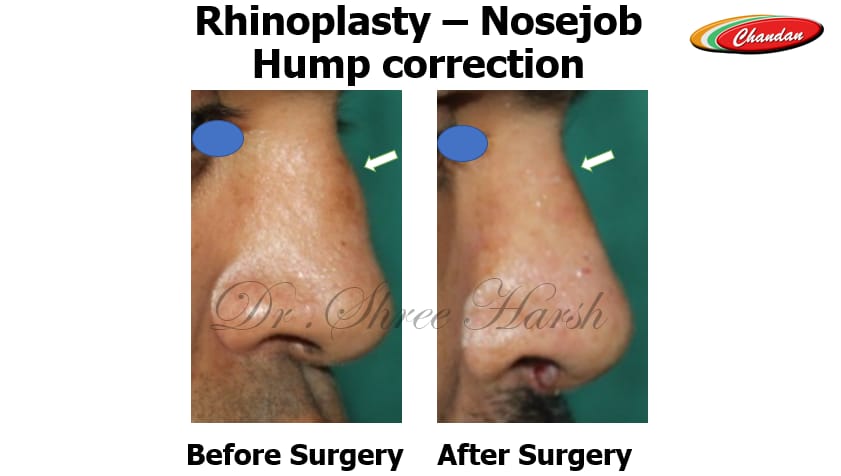
Case 4 - Rhinoplasty : Hump Correction
Meet Your Surgeon
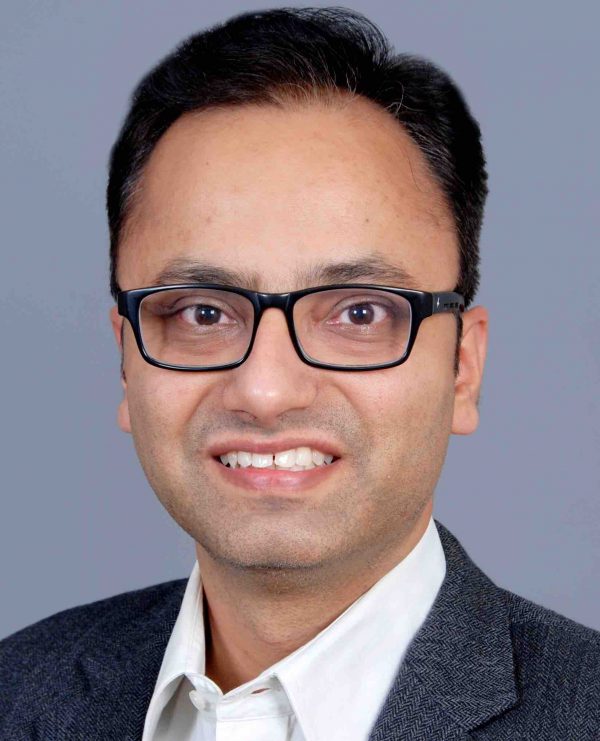
Dr. Shree Harsh is a board certified internationally trained Plastic Reconstructive and Aesthetic Surgeon. He has been trained in the prestigious and historical department of Plastic and Maxillofacial Surgery at G.M.C.Nagpur from where he completed his M.Ch. in Plastic and Reconstructive Surgery. He cleared his D.N.B. in Plastic Surgery from the National Board of Examination, New Delhi. He has received the international scholarship of Plastic Surgery Educational Network by the American Society of Plastic Surgeons in the year 2016-2017. He was awarded the prestigious DAFPRS fellowship by the Dutch Association of Facial Plastic and Reconstructive Surgery. He has been trained by Dr.Patrick L Tonnard and Dr.Alexis Verpaele at the MACS lift centre- Coupure Centrum in Ghent, Belgium in both Surgical and non Surgical Aesthetic Surgery procedures during his fellowship period. He has presented several papers at national and international level conferences and is the author of a number of publications in scientific journals. He is a soft-spoken dedicated Plastic Surgeon who believes in safety first for the patients.
Book Consultation with Dr Shree Harsh
It is very natural to be anxious about the outcome of your cosmetic surgery and it is best to openly discuss your concerns with Dr. Harsh. During your consultation Dr. Harsh will:
- Evaluate your general health status and any pre-existing health conditions or risk factors
- Explain the problem to you
- Ask for your photographs
Be prepared to discuss:
- Your surgical goals and expectations
- Medical conditions, drug allergies, and previous medical treatments.
- Current medications, vitamins, herbal supplements, alcohol, tobacco, and drug use if any.
- Details if you have undergone any previous surgeries.
- Likely outcomes, and any risks or potential complications.
